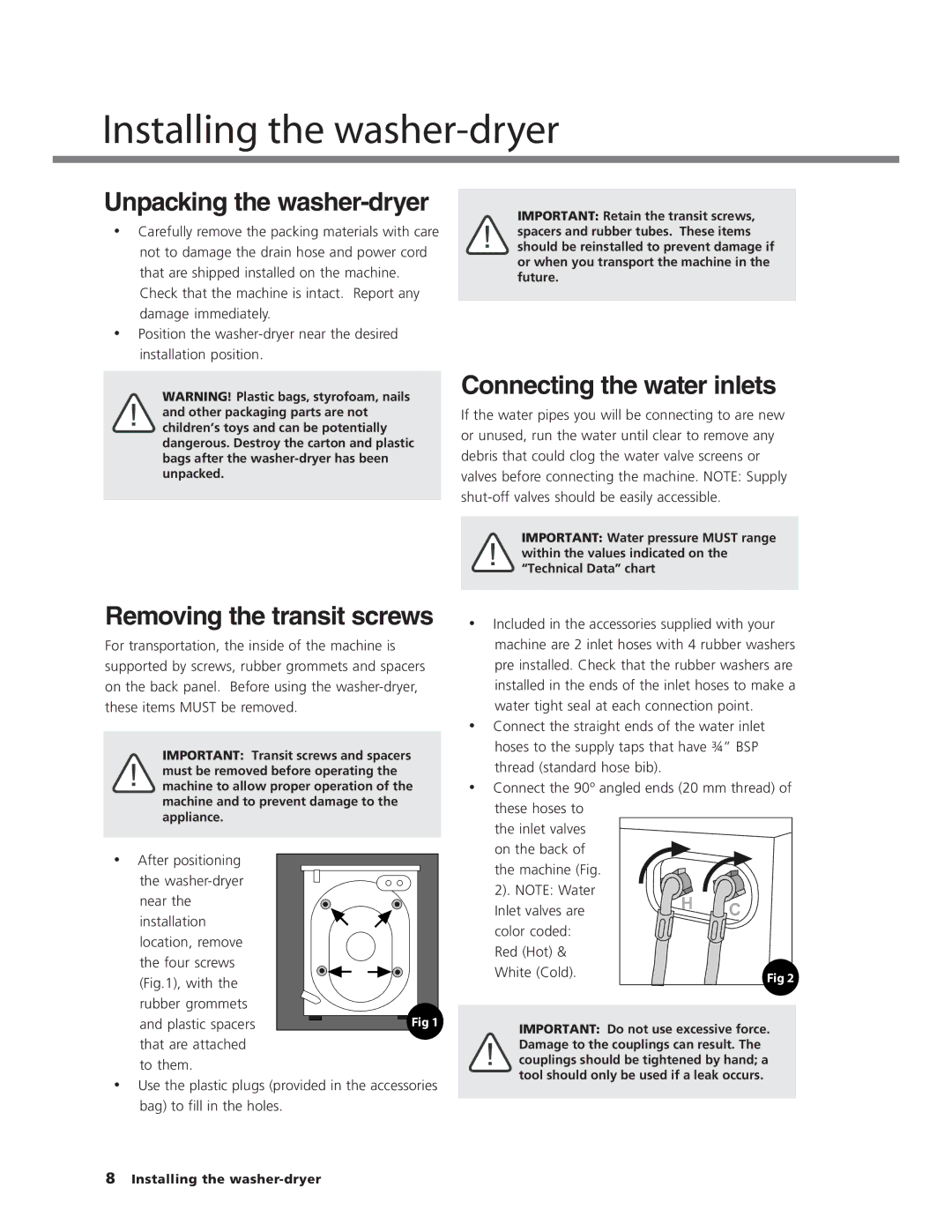
Installing the washer-dryer
Unpacking the washer-dryer
•Carefully remove the packing materials with care not to damage the drain hose and power cord that are shipped installed on the machine. Check that the machine is intact. Report any damage immediately.
•Position the
IMPORTANT: Retain the transit screws, spacers and rubber tubes. These items should be reinstalled to prevent damage if or when you transport the machine in the future.
WARNING! Plastic bags, styrofoam, nails and other packaging parts are not children’s toys and can be potentially dangerous. Destroy the carton and plastic bags after the
Connecting the water inlets
If the water pipes you will be connecting to are new or unused, run the water until clear to remove any debris that could clog the water valve screens or valves before connecting the machine. NOTE: Supply
IMPORTANT: Water pressure MUST range within the values indicated on the “Technical Data” chart
Removing the transit screws
For transportation, the inside of the machine is supported by screws, rubber grommets and spacers on the back panel. Before using the
IMPORTANT: Transit screws and spacers must be removed before operating the machine to allow proper operation of the machine and to prevent damage to the appliance.
•After positioning
the
•Use the plastic plugs (provided in the accessories bag) to fill in the holes.
•Included in the accessories supplied with your machine are 2 inlet hoses with 4 rubber washers pre installed. Check that the rubber washers are installed in the ends of the inlet hoses to make a water tight seal at each connection point.
•Connect the straight ends of the water inlet hoses to the supply taps that have ¾” BSP thread (standard hose bib).
•Connect the 90º angled ends (20 mm thread) of
these hoses to |
|
| |
the inlet valves |
|
| |
on the back of |
|
| |
the machine (Fig. |
|
| |
2). NOTE: Water | H | C | |
Inlet valves are | |||
| |||
color coded: |
|
| |
Red (Hot) & |
|
| |
White (Cold). |
| Fig 2 | |
|
|
IMPORTANT: Do not use excessive force. Damage to the couplings can result. The couplings should be tightened by hand; a tool should only be used if a leak occurs.
8Installing the
